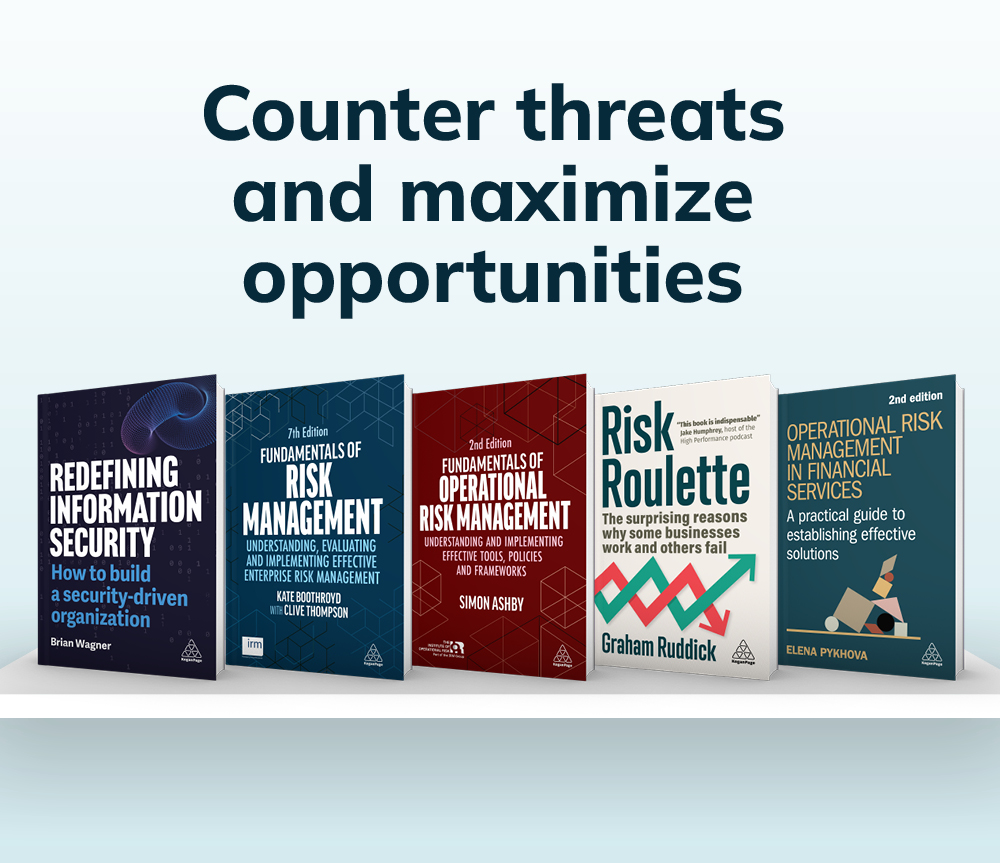FREE UK and US shipping | Get the ebook free with your print copy when you select the "bundle" option | T&Cs apply
Risk & Compliance Books
Latest books in Risk & Compliance
Trending books
Latest insights in Risk & Compliance
Risk Management, Compliance & Regulation, Business Improvement David Hillson gives us an insight into how important existential risk will be in the future.
Business Stories, Artificial Intelligence, Cybersecurity, Risk & Compliance The rapid development of AI makes it easier for cybercriminals to scam individuals and organizations. Understand current cyber attack approaches and the implications of AI within cyber security.
Risk & Compliance, Risk Management, Sustainable Logistics Discover the impact of climate change related risks and how to effectively manage them for your business.







